On June 21th, the twelfth session of the Intergovernmental Council of the UNESCO Information For All Programme (IFAP) was held in a mixed format in the Eleventh Chamber at UNESCO Headquarters in Paris. The conference will last two days and focus on policy and action guidelines in the area of access to information and knowledge. Professor Fang Xingdong, Executive Director of International Communication Research Center at Zhejiang University, Director of Digital Civilization Research Institute at Wuzhen, Expert of Information Ethics Working Group (IEWG), and Professor Zhong Bu, Chief expert of International Communication Research Center of Zhejiang University, Chief Expert of Digital Civilization Research Institute at Wuzhen, Expert of Information Development Working Group (IDWG), were invited to participate in the event. Through this meeting, they have a comprehensive understanding of IFAP's operation mode and coordination mode, establish initial contact with relevant important people such as IFAP President, secretariat and member states, and communicate with Chinese representatives in UNESCO to establish long-term contact. In addition, as the experts of the expert group, they proposed to hold or co-sponsor the information technology forum with global influence.
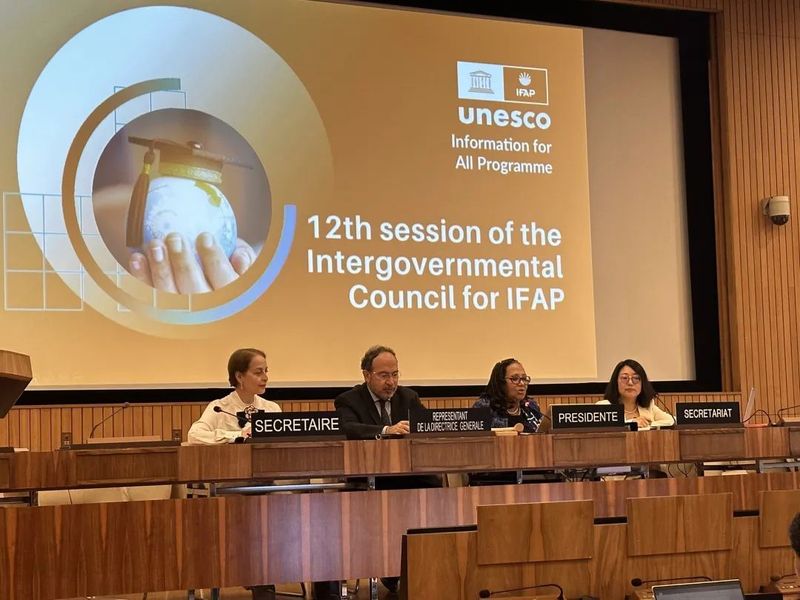
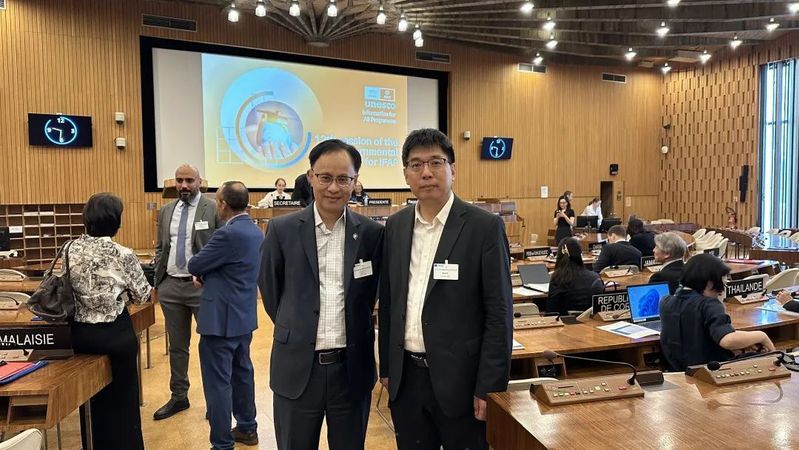
In addition to the three major sectors of education, science and culture, the UNESCO actually runs the fourth sector of Information and Communication. The Information and Communication Section has established an intergovernmental initiative IFAP to promote global initiatives for access to information and knowledge sharing. Established in 2001, the programme works with various stakeholders to promote access and sharing of information for social inclusion, sustainable development and the building of knowledge societies. With the support of the Secretariat of IFAP , IFAP has organized more than 20 high-level initiative hybrid meetings, forums and events in countries such as Belgium, France, India, Ireland and Jamaica. The programme has also demonstrated its global reach by participating in global forums such as the World Summit on the Information Society, the European Internet Governance Dialogue, the Internet Governance Forum and the UNESCO Conference on Trust in the Internet. The work of IFAP is guided by the Intergovernmental Council, which meets twice a year. The Council is currently composed of 18 UNESCO Member States, elected by the UNESCO General Conference, and is responsible for developing policies and guidelines for action to promote the IFAP. China has been actively involved in the program, sometimes as a member of the IFAP Board of Governors and sometimes as a member of the Bureau of the IFAP Board of Governors.
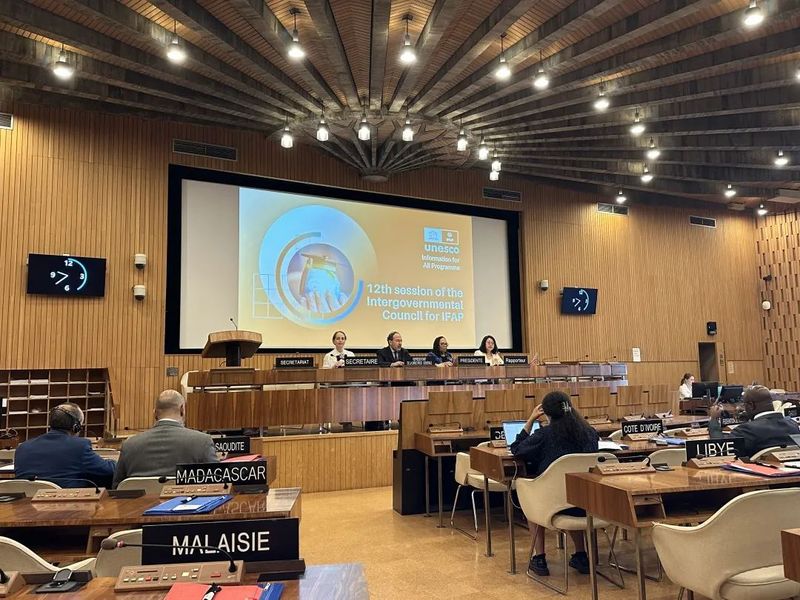
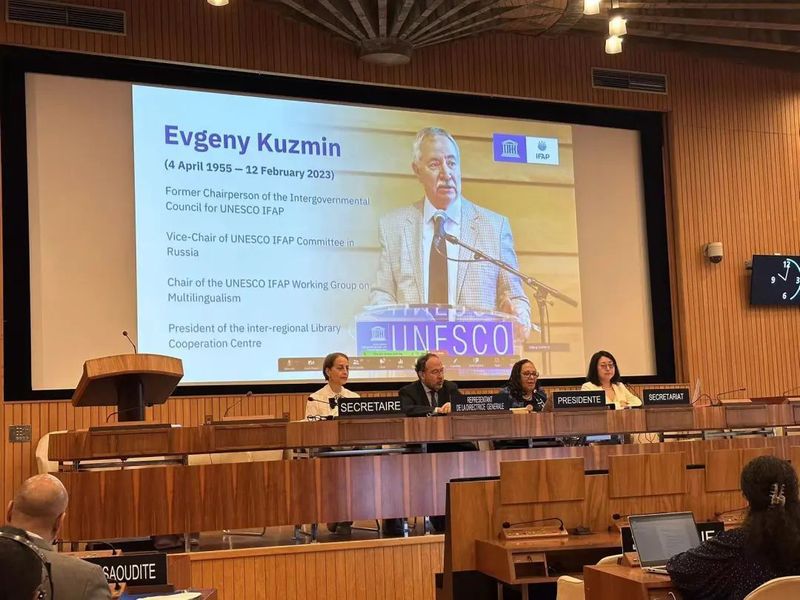
The agenda of this meeting mainly includes: (1) Adoption of the final draft report of the IFAP Governing Council on its eleventh session; (2) To present information on the activities and results achieved by IFAP in accordance with the recommendations of the Council at its eleventh session and the decisions of the Bureau at its thirty-third session, and to present a draft IFAP strategic plan; (3)To discuss proposed amendments to the IFAP Constitution and Rules of Procedure (4) To propose the draft report of Operation Manual of IFPA; (5) Conducting project review; (6) Release partner reports, etc.
During the discussion of the conference, Professor Fang Xingdong and Professor Zhong Bu suggested that in addition to holding IFAP workshops and forums in Europe, IFAP should consider holding IFAP workshops in East Asia, which is economically developed and can provide strong support for IFAP workshops. It may contain focusing on youth's use of digital technology, information security and privacy, and other challenges and issues of common concern to young people around the world. IFAP workshops can be sponsored by local governments, enterprises and civil society in a diversified way. The sponsorship method can be expanded, and the scope for society to participate in IFAP issues and pay attention to these issues can be expanded. The proposal has been endorsed by the Chairman and the Secretary-General, and further consultations will be carried out in the future.
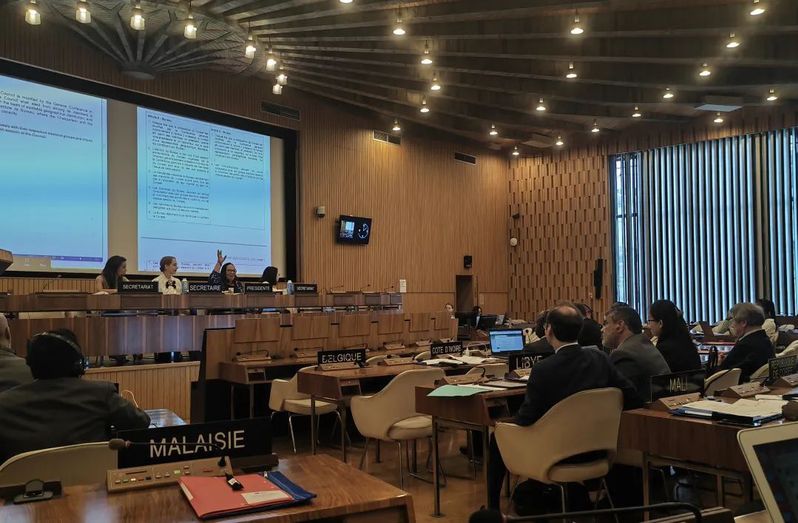
Since the eleventh session of the IFAP Governing Council, the IFAP Secretariat conducted inclusive, multi-stakeholder consultations with the IFAP Bureau, the IFAP Working Group, the IFAP Council, Member States, national IFAP committees, NGO, partners, and in-house experts from UNESCO's headquarters, regional and field offices. The draft Strategic Plan (2023-2029) was finalized in March 2023. The draft is in line with UNESCO's medium-term strategy for 2022-2029 and the contribution of the current programme and budget, and updates its outputs and activities in the new context of the global digital transformation, in line with the review process of the World Summit on the Information Society and the Global Digital Compact developed by the UN Secretary-General. The working groups continued to address issues within IFAP's six priority areas, namely access to information, information for development, information ethics, information literacy, information preservation and multilingualism. In addition, IFAP is actively working with a number of new partners, including the International Association of Librarians and the Federation of Libraries, EuroDIG, GDIP and UNU-EGOV to advance the common goal of promoting inclusive knowledge societies.
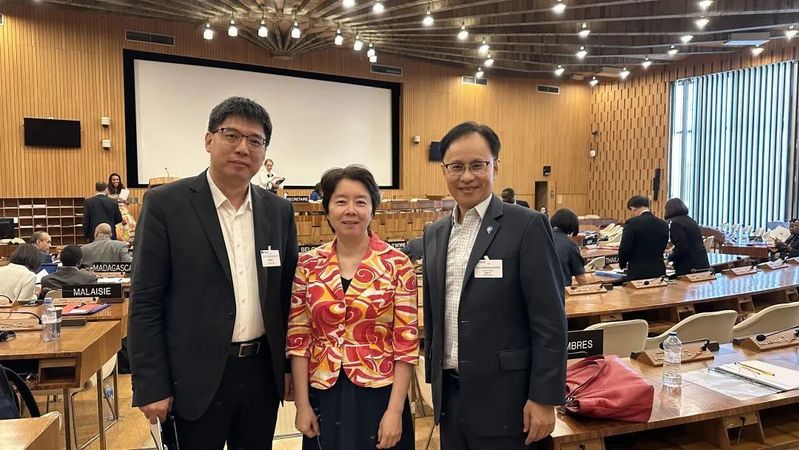
Professor Fang Xingdong, Professor Zhong Bu and Ms. Shen Xuesong, Minister Counsellor of the Chinese Mission to UNESCO
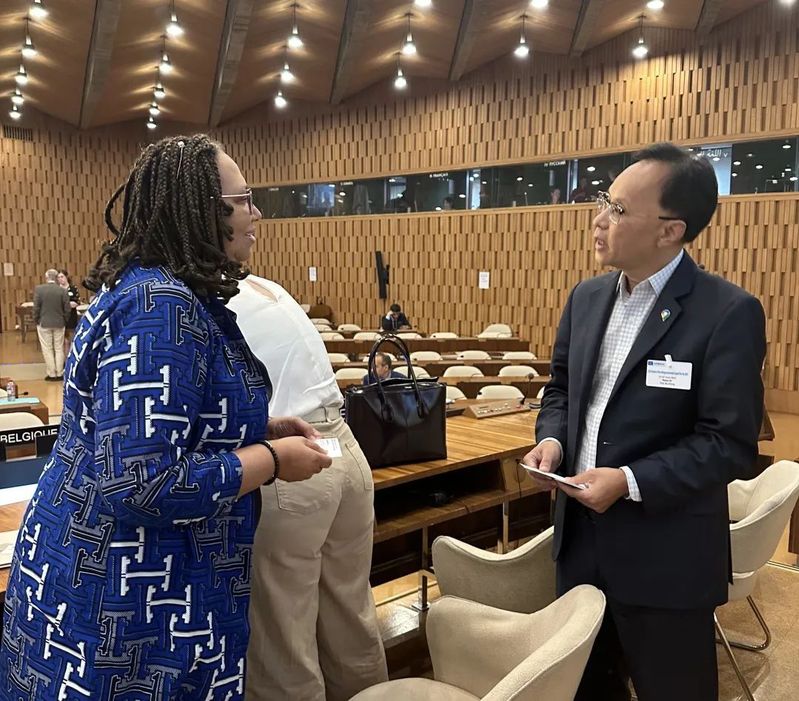
Professor Zhong Bu spoke with IFAP President Dorothy Gordon

